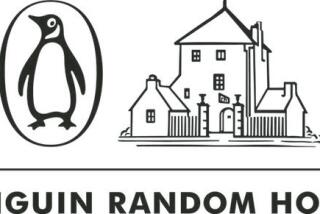Book publishers Penguin, Random House in merger talks
- Share via
British publishing house Pearson said it’s in talks to combine its Penguin book publishing unit with Random House Inc. as the media companies try to bulk up in response to a surge in providers of electronic books.
The merged company would have combined revenue of about $3 billion, based on 2011 annual reports. No agreement has been reached and the discussions may not lead to a transaction, Pearson said in a statement. Christian Steinhof, a spokesman for Random House’ parent company, Bertelsmann, referred to Pearson’s statement and declined to comment further.
Bertelsmann Chief Executive Thomas Rabe, who took over in January, is looking for acquisitions to reduce the company’s dependence on Europe and expand its digital businesses. Pearson is seeking to boost its education unit and has selected John Fallon, its head of education, to replace CEO Marjorie Scardino, who will step down by the end of the year.
“Strategically it makes sense for Pearson as there are synergies to be gained from the merger,” said Ian Whittaker, an analyst at Liberum Capital in London. “In an industry that is facing structural problems, the easiest way to get profits are synergies and cost cutting.”
The combined heft of Random House and Penguin could give the companies more control over the market as book publishers face pressure from big buyers such as Amazon.com Inc. that are able to drive down prices, Whittaker said.
Penguin, the publisher of “The Help” and “The Diary of a Wimpy Kid” series, reported a 3.5% decline in sales to about $711 million in the first half of 2012. Profit fell to about $35.5 million from about $67.7 million during the same period last year, even as its books won two Pulitzer prizes and 132 of them made the New York Times bestseller list.
Random House’s revenue increased 20% in the first half of the year to about $1.5 billion. Bertelsmann’s publishing unit profited from sales of the international bestseller “50 Shades of Grey” and rising e-book sales. Earnings before interest and taxes rose 64% to $182 million.
Random House’s e-book sales accounted for 25% of its revenue in the first half of 2012. Penguin is lagging behind in this business but catching up. Its e-book sales grew 33% in the first six months through June, bringing the unit’s revenue from digital books to 19%.
Still, the talks with Random House are “not a game changer” for Pearson, Whittaker said. The Penguin unit accounts for about 17% of sales at Pearson, whose business is dominated by its educational software, books and services.
More to Read
Inside the business of entertainment
The Wide Shot brings you news, analysis and insights on everything from streaming wars to production — and what it all means for the future.
You may occasionally receive promotional content from the Los Angeles Times.










